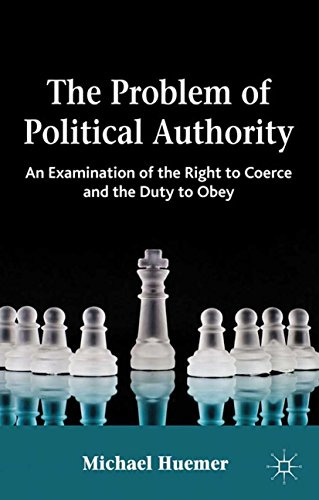When I attack housing regulation, market-oriented economists occasionally push back.
“Do you have a problem with homeowners’ associations (HOAs)?” they ask.
No, I don’t.
“Even when they tell you what you can and can’t do with your own house and land?”
That, I affirm, is the whole point of an HOA.
“Well,” the critics continue, “what’s the difference between HOAs and local government? If the former can rightfully restrict what you do with your own home and your own land, why not the latter?”
My answer is simple: The difference is that HOAs start with unanimous consent. You can’t launch a new HOA unless you get all of the members to voluntarily join. Which is like pulling teeth!
Upshot: In the real world, HOAs are almost always founded not by homeowners coming together, but by the initial developer. How? Developers create HOAs by imposing three conditions of the sale on each and every original owner:
The buyer agrees to submit to the authority of the HOA.
The buyer agrees to require the next owner to agree to (1) if they ever sell their home.
The buyer agrees to require the next owner to agree to (2) if they ever sell their home.
As a result of these carefully-crafted contractual conditions, 100% of the members of the HOA - past, present, and future - consent to belong.
In stark contrast, local governments essentially never start with unanimous consent. Usually you’re lucky if they even start with majority support. Democracies often pretend that their constitutions were in some sense unanimously adopted, but that is a blatant lie. If “You consented by not leaving the country” is consent, then consent is empty verbiage. Social contract theory, despite its popularity, is false to the point of absurdity.
False to the point of absurdity for federal governments.
False to the point of absurdity for state governments.
And yes, false to the point of absurdity for local governments.
See Huemer’s The Problem of Political Authority, chapters 2 and 3, if you have the slightest doubt.
Why make such a big deal about unanimous consent? Because anything less than unanimity means that some participants participate at the point of a gun. Picture a massive construction project. 10,000 workers toil side-by-side. What would you think if you learned that a single plumber was there under the CEO’s threat of violence? Instead of being a noble undertaking, the project is a criminal enterprise. A very big deal.
As an economist, I’m tempted to reply, “Unanimous consent is a noble aspiration, but in the real world, doesn’t this noble aspiration have an astronomical cost?” Yet I also have a lengthy reply to this tempting reply. Namely:
Unanimous consent has ghastly effects in nightmare scenarios, like “What if the only way to save the world is to make 100% of humans give you $1 each?” In the real world, however, unanimous consent is, on balance, glorious. Unanimous consent is the bodyguard of autonomy and the life-giving air of progress.
How so? Due to the immense diversity of human preferences and beliefs, unanimous consent is impossible for any sizable society to attain. You can still undertake large projects by using selection and incentives to assemble a subset of a sizable society: “If you don’t like how our group works, don’t join.” But for all practical purposes, unanimous consent ensures that no creed and no crusade can triumph even for a day, much less the rest of history.
How is that good? Because almost all creeds and almost all crusades are wrong! This is undeniable because there are so many incompatible creeds and so many incompatible crusades. And even if your creed or your crusade is right, right does not make might. The odds that the one thing that’s right prevails against everything that’s wrong is slim indeed. Unanimity ensures that no one and nothing fully wins. Which, given these harsh realities, is for the best.
Facile, you say? Think about what “fully wins” actually means. Once a creed or crusade fully wins, it rigs the system to ensure that it keeps winning - year after year, century after century. It reforges institutions to crush opposition before its birth. Before its conception! Which means an end to progress as well as autonomy. Even if a ruling creed was the best approximation to the truth in its day, what are the odds that it will be the best forever? Even if a ruling crusade was the best course of action in its day, what, again, are the odds that it remains the best course of action for all time?
Too abstract? Try this thought experiment. Literally everyone joins a massive HOA. The HOA then makes enthusiastic support of the Current Thing mandatory for all members for all time. The contract therefore doesn’t just bind current owners; it binds all their descendants unto ages of ages. Sure, you can leave your parents’ house when you grow up, but every other house on Earth signed the same contract. You are stuck!
Terrifying, yes? Then take comfort in the fact that it will never ever happen in the real world. You can’t get 100% of people to concede that the sky is blue. Getting 100% of people to join your HOA? Forget about it. In the real world, the requirement of unanimous consent preserves autonomy for you, your children, and your children’s children. Which in turn preserves the possibility of progress.
Philosophers often contrast the “negative freedom” to be left alone against the “positive freedom” to flourish. “Positive freedom”: it’s a strange abuse of language. If you were the only person on Earth, you’d be poor and lonely, but clearly free. What the preceding thought experiment shows is that by-the-book “negative” freedom stubbornly shields the autonomy and progress that the slogan of “positive freedom” awkwardly tries to capture.
The good news: In the real world, it is unanimity, not uniformity, that is self-perpetuating. As long as there are a reasonable number of realistically contentious humans, they’ll never all contractually converge on anything. Which means that autonomy - and progress - shall continue. Not just for the humans who live today, but as long as the fractious human spirit endures.






A lot of this comparison depends on the specific requirements of the HOA, and how much they change over time. Many of them do NOT require unanimous consent to impose new rules or fees. I'd say the ability to exit is a part of the rules being voluntary. I don't know of any system which doesn't include some level of coercion without underlying consent. The best ones minimize the coercion and allow trade and contracts such that MOST of the decisions and tradeoffs are at least made freely, if not fully euvoluntary.
Property rights are difficult to reason about, because it turns out no house is an island (or at least very few are). There is _ALWAYS_ a tension between individual choice and the impact on neighbors and non-owners. One can frame this as "externality" or as "part of the bundle of rights granted by the deed", but it's not obvious where the boundaries are.
I think the parallels between an HOA and a local government are stronger then what Bryan wants to acknowledge. Indeed someone that buys into an HOA is making a voluntary choice to join and therefore submit to its rules. But this would not be the case for the buyer's child that may inherit the property later, and would be bound by the HOA's rules as long as they want to keep being able to live where the may have always lived. This does not seem that dissimilar from being born into a small town and being required to abide by the rules of that small town local governments. Some of these local governments also resulted from people that lived in a certain area coming together in the past and deciding to have local rules.
Also, I wonder what Bryan thinks of a world where more and more new construction is made to ibe part of an HOA. My understanding is that recent data showed that 80%+ of new construction included HOAs. If we got to a world where 95% of all houses one could buy are associated with an HOA, wouldn't this be a situation where yet another level of "government" would be close to unavoidable for most people?